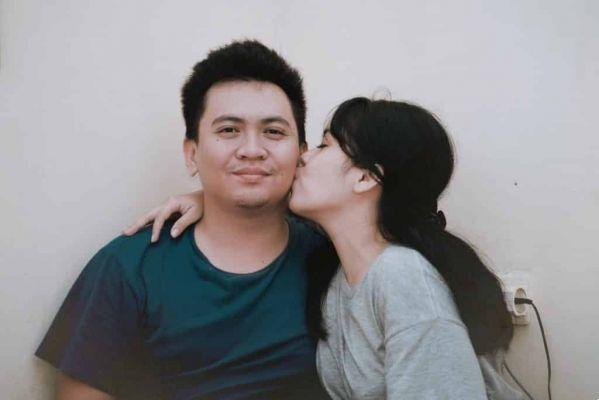"And if you did not exist
I'll be just one more point
In this world that comes and goes
I would feel lost
I would need you
And if you did not exist
Tell me how I would exist
I could pretend to be me
But I wouldn't be true”
Every lover of French romantic music from the 70s has heard this song, in the voice of the French-American singer Joe Dassin: “Si tu n'existais pas”.
Although it is a declaration of love, the stanzas highlighted above lead us to a reflection on the uniqueness of the relationship between one self and the other. They tell us about the meaning of the existence of the other in our life, to the point that, without the other, we are nobody, we lose our own identity.
Are we aware of the real importance of this relationship today? Who are you (the other) and what do you represent in my life? I am the other in your life, but what do I mean to you? By using these two personal pronouns (“I” and “you”), we indicate that there is a close relationship between two people. It is not about an I and a you that ignore each other, but that coexist in a certain existential circumstance.
To reflect more deeply on these questions, it is necessary to resort to the concept of subject. What is it to be a subject? You can tell me that subject is any individual. Okay, maybe you want to tell me that you are a person, someone with an identity of their own that distinguishes themselves from other individuals. I initially agree with you, but I can add that subject, in the anthropological sense of the term, is a person capable of acting autonomously and consciously. That is, someone who thinks, chooses, makes decisions and takes responsibility for them. But (there's always a “but”, isn't there?) these abilities are not innate, we are not born ready. We become subjects as we exercise our free will and form our identity, or rather, the “I-consciousness”. This consciousness is formed in our existential trajectory, in which we identify ourselves as an “I” that, despite being different from another “I”, recognizes itself in it.

Let's understand more about it. Sartre, an existentialist philosopher of the XNUMXth century, claimed that we are a “being in itself” and a “being for itself”. The being itself is conceptualized as one that has a defined essence. In the case of the human being, we are someone with attributes of our own, however, as a “being in itself”, we are like any other being without awareness of itself or the world. Being for oneself is that condition of the human being who has knowledge of himself and the world, which makes him different from other beings. In this aspect, the human being assumes his subjectivity and realizes that it makes him unique. However, upon becoming aware of its existence, he feels the need to make sense of it. In this existential quest, he perceives himself as an always unfinished being, a project (forward, for the future). That's where the anguish that we've all experienced arises.
You, dear reader, can ask me: didn't this philosopher think about the help of the “other” like him? At the time when he wrote “Existentialism is a humanism”, he believed that man could only count on himself, on his freedom of choice. But I can tell you that he changed this point of view a lot because he too, like any human being, was a “being under construction”. In another work of his authorship, “Being and Nothingness”, he states: “In the field of my reflection I can only find the consciousness that is mine. The other is the indispensable mediator between myself and myself: I am ashamed of myself as I appear to the other.” Now, if he describes the “being for himself” as an unfinished being, a project, how could he not know the importance of the other in his life?
So we concluded that we can look at ourselves, reflect and act for ourselves, but our individuality and identity only materialize in coexistence and in the recognition of the other as a subject equal to us. In other words, our humanity is realized in intersubjectivity. For Sartre, intersubjectivity is born from the shame of the other. But we will not delve into this aspect of Sartrean thought because it is beyond the scope of this article.
From the considerations made here, we can see the importance of knowing the foundations of our convictions. We are, therefore, face to face with the other and we need him a lot, despite our differences and personal choices. But it is not just about imitating him, exchanging ideas or assimilating his culture. Intersubjectivity presupposes respect for identities and is essentially dialogic. Therefore, even admitting the conflicting nature of human relationships, we find that, in today's world, in order to live peacefully, sensibly and, above all, humane, we must seek intersubjectivity in all areas of our lives. Do you agree?
You may also like
- Tips for an existential crisis
- Understand the role of the ego in your personality
- Analyze the impact of the phrase “I see you” on love
- You are you?
- Relate well to yourself to live well with others
Think with me. Our family, for example, is not just a surname that links us by blood ties. It is an important core of intersubjectivity. In family life, with words and gestures, we form attitudes, habits and values through which we build our personal identity and recognize the identity of other people. In our family there is the I, the you and, above all, the we. It's not that?
At our school, something similar happens. It is not just a collective space for teaching and learning. It is, par excellence, the place of intersubjectivity in which everyone must recognize themselves as subjects of the educational process, by exchanging experiences, learning from each other, ultimately contributing to the realization of educational ideals or purposes.
In the same way, we can consider that work. As an indispensable dimension to the realization of our human essence, it requires the interrelation of subjects. Everything we produce collectively, consciously and respectfully is much more complete, creative, solid and efficient.
Have you ever imagined the work of producing our food without intersubjectivity?

Other spaces such as those in which we develop leisure activities, art, spirituality, citizenship… These are also important spaces for intersubjectivity. The human being is the author and co-author of his humanity. Isn't that just wonderful? How can we be happy without showing our face — our true self — to those we live with?
For all the above, to conclude, I invite you, my dear reader, to return to the initial questions: who are you? (the other: my father, my mother, my husband, my wife, my brother, my sister, my teacher, my teacher, my student, my student, my co-worker, etc.) What do you represent in my life? I who am the other in your personal, professional, spiritual, citizen life… what do I mean to you?
I believe that, by doing this reflection, it is possible to assess what we have already lost or gained in our relationships with other people. Perhaps we can see, before losing them, that — as the song mentioned at the beginning of the text says — “if you didn’t exist… tell me how I could exist… in this world that comes and goes… I would feel lost.”

























